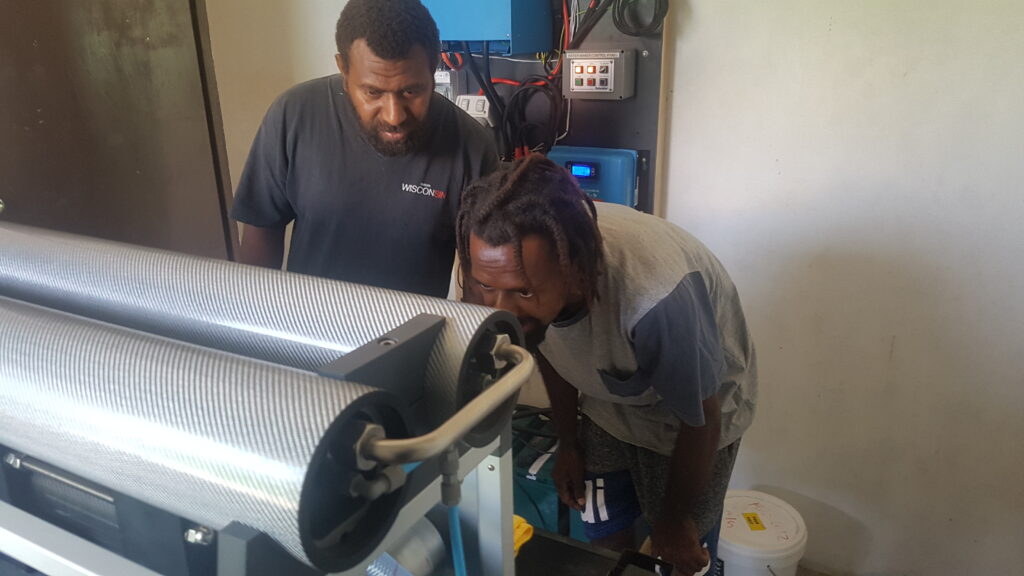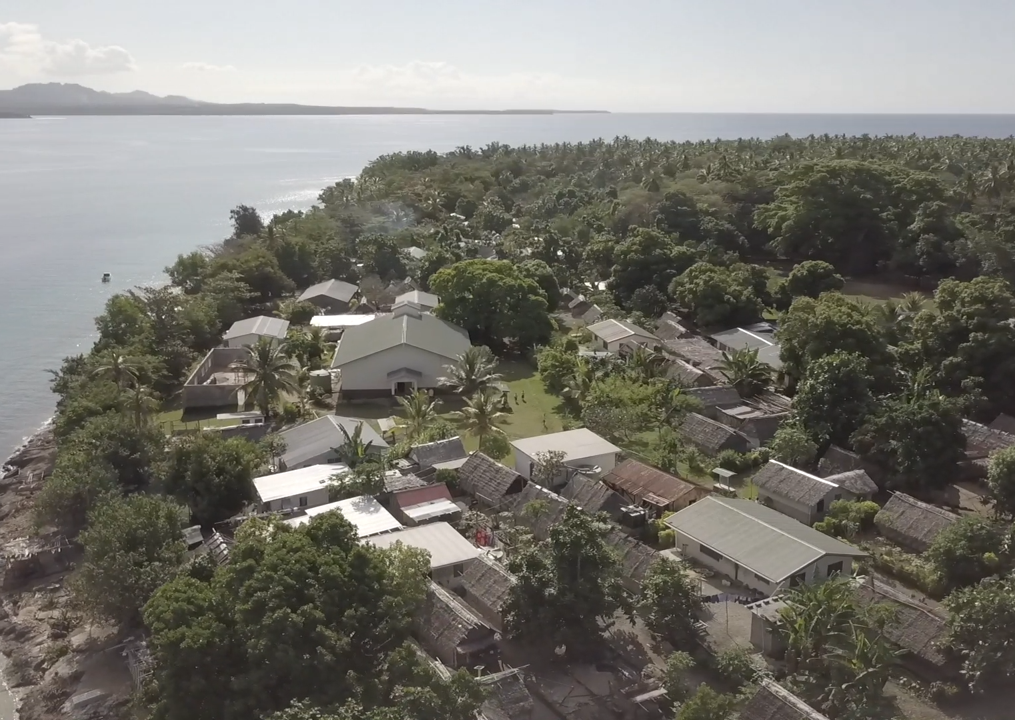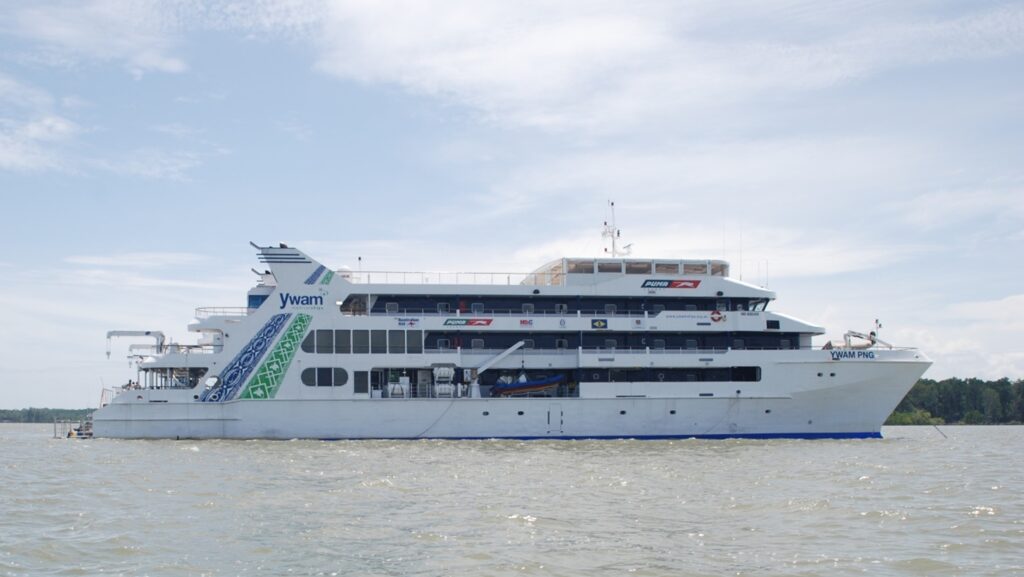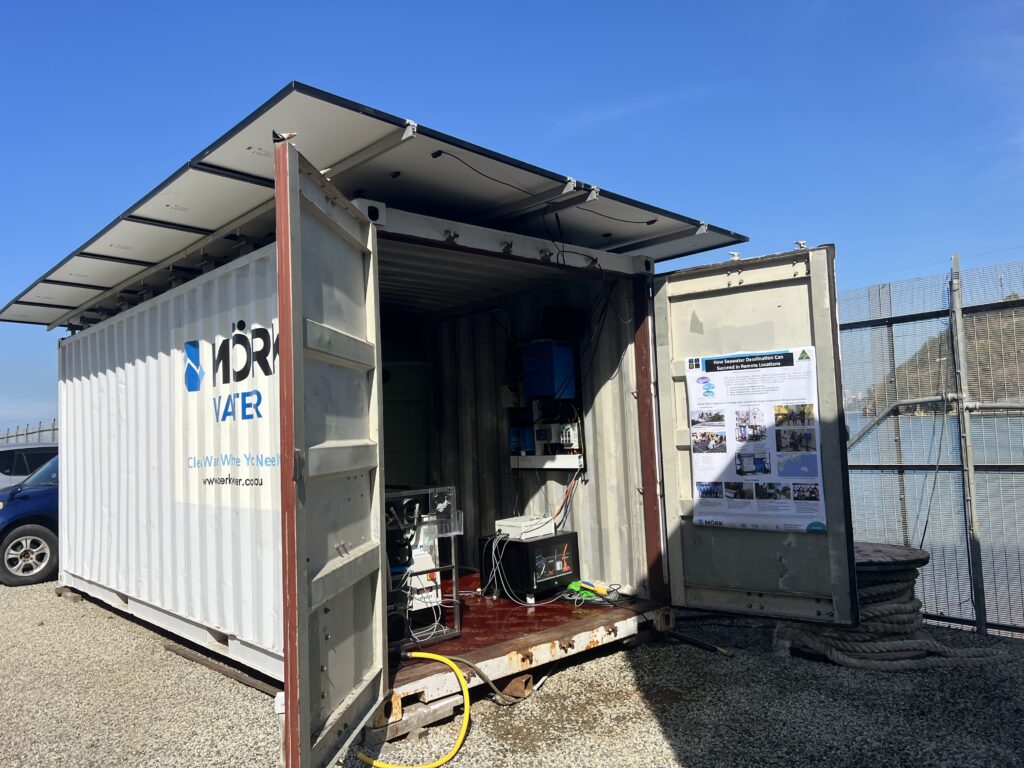Freshwater Supplies in Coastal Communities
Coastal communities are generally sited in locations with abundant freshwater supplies and a reliable source of food. For drinking water supplies, coastal communities have traditionally relied on a combination of surface water sources (if available), shallow groundwater wells (tapping freshwater lenses) and rainwater harvesting. Changing climactic conditions and an increase in population have seen the pollution of surface water sources, saltwater inundation of freshwater lenses and shifting rainfall patterns, severely limiting freshwater supplies.
Remote coastal communities frequently lack reliable sources of electricity and can be difficult to access making the provision of water difficult. Remote communities are rarely connected to distributed water supplies. Instead, many remote coastal communities will be forced to travel long distances to get sufficient drinking water when local sources are exhausted. This can involve long boat trips or walking long distances to alternative freshwater sources. Bottled water is provided in emergency situations but this leads to extensive plastic waste entering local marine ecosystems. The water from polluted surface water sources can be boiled for consumption but this requires the extensive use of firewood.

Seawater Desalination
Decentralised water treatment focusses on treating the most sustainable source of water available locally at a given location. For coastal communities, particularly those with unreliable rainfall and diminished freshwater lenses, this is often seawater. Remote coastal communities often have unlimited supplies of pristine seawater from which to produce drinking water. Seawater, containing an average of 35 g per litre, needs to have the salt removed if it is to be used as drinking water.
Reverse Osmosis desalination is currently the gold standard for producing freshwater from seawater. Globally, Reverse Osmosis makes up more than 2/3rd of all desalination plants. Alternative technologies such as electrical or thermal desalination cannot compete economically with Reverse Osmosis due to higher power requirements. Seawater reverse osmosis pressurises seawater in excess of the osmotic pressure of seawater (~30 bar) to force low salinity water through a porous membrane. The pores of the reverse osmosis membrane rejects 99% of the salt ions while permitting the transport of water.

Solar Powered Seawater Desalination
Reverse Osmosis is predominantly a physical treatment method (pumps generate hydraulic pressure to overcome osmotic pressure). Physical processes lend themselves well to remote locations as they can be maintained locally. Chemical based water treatment requires ongoing supplies of chemicals. More information about operating reverse osmosis chemical free can be found here.
However, seawater desalination is the most energetically expensive method of water treatment. Groundwater pumping and water recycling both use less energy than seawater desalination. Seawater desalination is only used in locations where there is no better source of water to treat. The rapid growth in solar power has seen remote locations around the world having access to locally generated electricity when the sun is shining. In many locations, solar power is now the cheapest method of electricity generation (by levelized cost of electricity). Solar powered seawater desalination overcomes many of the limitations of standard reverse osmosis. By combining solar power with low recovery seawater desalination, power and water can both be produced locally with minimal effect on the local ecosystem. As the membranes are not operated 24 hours a day, membrane lifetime is increased.
By using locally generated power, sourcing the feedwater locally and treating it onsite, solar powered seawater desalination systems can be placed in any coastal location anywhere in the world. This creates a truly decentralised water supply system giving communities sustainable access to clean and safe drinking water.

Moerk Water specialises in making clean water where you need it. Contact Moerk Water today to discuss your specific water needs.




